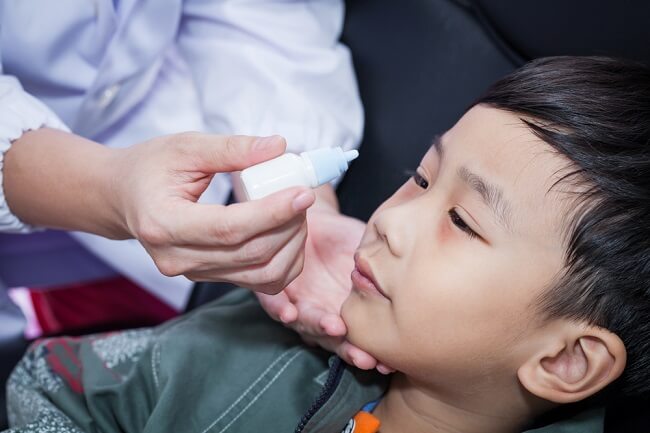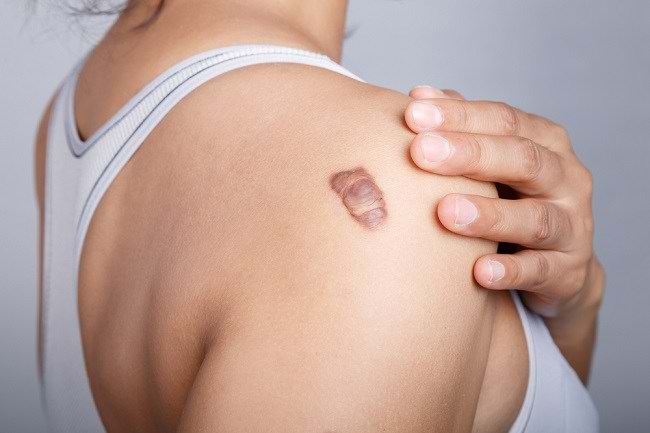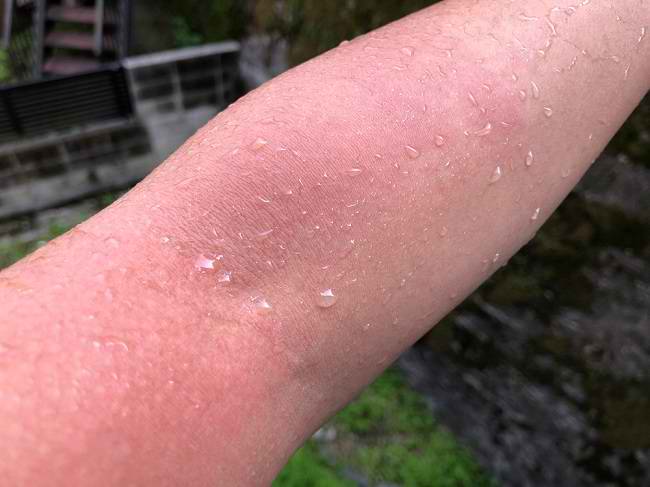Mycophenolate mofetil is a drug to prevent body rejection after organ transplants, such as a kidney transplant or a liver transplant. This drug will usually be given immediately after the organ transplant process is carried out.
Mycophenolate mofetil belongs to the immunosuppressant class of drugs that work by weakening the immune system, to help the body accept the newly transplanted organ, thereby preventing transplant failure.

Mycophenolate mofetil is usually used in combination with other drugs, such as cyclosporine or corticosteroid drugs. In certain conditions, sometimes this drug is also used to treat lupus nephritis.
Mycophenolate mofetil trademarks: Cellcept, Celmunos, Kamyfet, Mycocell, Myrept
What is Mycophenolate Mofetil
| group | Prescription drugs |
| Category | Immunosuppressant drugs |
| Benefit | Prevents the body from rejecting the transplanted organ |
| Consumed by | Adults and children |
| Mycophenolate mofetil for pregnant and lactating women | Category D: There is positive evidence of risks to the human fetus, but the benefits may outweigh the risks, for example in dealing with life-threatening situations. It is not known whether mycophenolate mofetil is absorbed into breast milk or not. If you are breastfeeding, do not use this medicine without consulting your doctor first. |
| Drug form | Tablet |
Precautions Before Taking Mycophenolate Mofetil
Here are some things you need to pay attention to before taking mycophenolate mofetil:
- Tell your doctor about any allergies you have. Mycophenolate mofetil should not be used in patients who are allergic to this drug.
- Tell your doctor if you have or have had stomach ulcers, bone marrow disorders, kidney disease, diabetes, hepatitis B or C, phenylketonuria, or an inherited enzyme deficiency, such as Lesch-Nyhan syndrome or Kelley-Seegmiller syndrome.
- Tell your doctor if you are pregnant, breastfeeding, or planning a pregnancy.
- Avoid direct sunlight and always use sunscreen when you are outdoors, because mycophenolate mofetil can cause your skin to be more sensitive to sun exposure.
- Do not drive a vehicle or do activities that require alertness after taking Mycophenolate mofetil, because this drug can cause dizziness.
- As much as possible avoid close contact with people with infectious diseases that are easily transmitted, such as chickenpox or the flu, because these drugs can make it easier for you to get an infection.
- Tell your doctor if you plan to get vaccinated while on treatment with mycophenolate mofetil. This medicine may affect the effectiveness of the vaccine.
- Tell your doctor if you are taking certain medications, supplements, or herbal products.
- See your doctor right away if you have an allergic drug reaction, serious side effect, or overdose after taking mycophenolate mofetil.
Dosis and Instructions for Use Mycophenolate Mofetil
The dose of mycophenolate mofetil given by the doctor depends on the health condition and age of the patient. Here is the explanation:
Purpose: Prevent rejection reactions in liver or heart transplants
- Mature:500 mg, 2 times a day.
Purpose: Prevent rejection reactions in kidney transplant
- Mature:000 mg, 2 times a day.
- Children aged 3 months: 750–1,000 mg, 2 times daily.
How to Take Mycophenolate Mofetil Correctly
Take mycophenolate mofetil as recommended by your doctor and read the instructions for use on the medicine package before taking the medicine. Do not change the dose without consulting your doctor first.
Mycophenolate mofetil should be taken on an empty stomach, at least 1 hour before or 2 hours after eating. Swallow this medicine whole. Do not crush, chew, or split this medication as this may affect the effectiveness of the drug.
If you are taking an antacid medication, take mycophenolate mofetil at least 2 hours before taking the drug.
If you forget to take mycophenolate mofetil, take it immediately if it is not close to the time for your next dose. If it is near, ignore the missed dose. Do not double the dose of mycophenolate mofetil to make up for a missed dose.
Store mycophenolate mofetil at room temperature and place in a closed container. Keep the medicine away from direct sunlight and out of reach of children.
Mycophenolate Mofetil Interaction with Other Drugs
There are several effects of drug interactions that may occur if mycophenolate mofetil is taken with certain drugs, including:
- Increased risk of infection or reduced effectiveness of the vaccine, when used with the BCG vaccine, influenza vaccine, or measles vaccine
- Increased risk of fatal side effects when used with adalimumab, fingolimod, or infliximab
- Decreased effectiveness of mycophenolate mofetil when used with activated charcoal, rifampicin, or cholestyramine
- Increased risk of serious infection if taken with azathioprine, bacitirinib, deferiprone, or rituximab
- Decreased effectiveness of hormonal contraceptives, such as birth control pills
Side Effects and Dangers of Mycophenolate Mofetil
Some of the side effects that can occur after taking mycophenolate mofetil are:
- Headache or dizziness
- Stomach ache
- Sleep disturbance
- Diarrhea or constipation
- Nausea or vomiting
- Joint pain, muscle pain, or back pain
- A stinging or burning feeling in the skin
- Tremor
Check with a doctor if the complaints mentioned above do not go away or get worse. Call your doctor right away if you have an allergic reaction to your medication or experience more serious side effects, such as:
- Abdominal pain or severe stomach cramps
- Black bowel movements or black vomit
- Chest pain, difficulty breathing, rapid breathing, or irregular heartbeat
- Swelling in the legs
- Easy bruising or paleness
- Lost balance
- Confusion, difficulty concentrating, or memory loss
- Dizziness, fainting, or seizures
- Jaundice
In addition, this drug can increase the production of white blood cells. This condition can lead to cancer, severe brain infections, or viral infections that are at risk of causing organ transplant failure.









